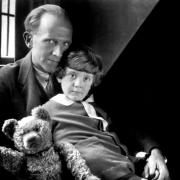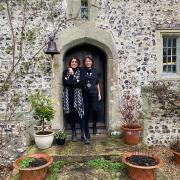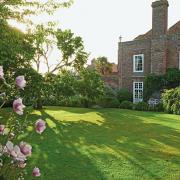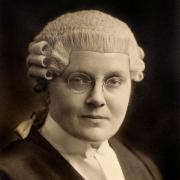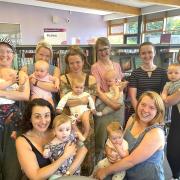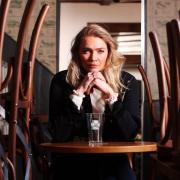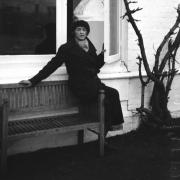Lord Egremont, this year’s President of the South of England Agricultural Society, talks about his hopes for the future of farming and appeals for help from landowners
Anyone who has visited Petworth Park in West Sussex will know that its gentle, Capability Brown-designed landscape gladdens the heart. It was immortalised on canvas by Turner and has delighted generations of visitors.
So naturally, the man who lives here, his study window overlooking the placid waters of the lake, knows something about taking care of the environment.
Lord Egremont is President of the South of England Agricultural Society this year. It’s a fitting appointment: forced to assume stewardship of the family’s Leconfield Estate at the age of just 24 when his father died, Lord Egremont oversees 14,000 acres in Sussex and 3,000 in Cumbria. The family lives in Petworth House, which has been managed by the National Trust since 1947, and farms around 1,000 acres, growing wheat and oilseed rape and raising sheep and beef cattle. He is keenly aware of the challenges facing our farming communities and speaks highly of his tenant farmers.
Lord Egremont, a historian whose books are published under the nom de plume Max Egremont, is joined in his study by his dog, Chip, a Sussex spaniel.
She doesn’t know it, but Chip combines many of Lord Egremont’s interests: localism; breeding; and honouring tradition. The breeds he chooses to champion signal his regard for his locality: a clutch of Sussex chickens peck away in a run in the private gardens, and a herd of Sussex cattle is raised for beef. The Estate’s sheep are Southdowns.
But as well as keeping old county breeds alive, the Egremonts, like other landed families, have a tightrope to tread, maintaining the beauty of their Estate while also making it pay. He says the area has changed since his boyhood, with an influx of new residents: “We want to make things nice for people when they come and live here, so we want to keep it beautiful, but I feel strongly that we’ve got to remember the people who make their living out of it. We can’t keep it in aspic too much. It would be a great mistake to do that, because it would lose its character.”
This year’s show theme is Horticulture, and while Lord Egremont isn’t green-fingered, his wife Caroline is an acclaimed garden designer who has transformed the private gardens at Petworth House and worked extensively with the Garden History Museum in London – “I’m going to rely on her to guide me through the year of horticulture,” he says. “We are a nation of gardeners and British people are keener on gardening than almost any other nation in the world – when you think of all the television programmes about gardening…there are almost as many as there are about chefs!”
The future of farming
Because of our proximity to London, Sussex is attractive to commuters keen to buy some land with their ‘forever home’. But this drives up prices and means that it is difficult for young people to break into agriculture. It’s a problem, says Lord Egremont. “It is very difficult for a young person now to break into farming through owning a farm, because farms are so hugely expensive, particularly in the south of England where they tend to be used for amenity purposes.”
And it’s not an easy life. “All the farmers that I know are deeply dedicated to their profession, and if they are not they don’t survive,” he says.
The message Lord Egremont would like his Presidency to uphold is the strength and vitality of British farming: “In this country we can be very proud of our agriculture. We ought to be prouder than we are.”
His great great great grandfather was at the vanguard of launching agricultural shows in this part of the world at the end of the 18th century, and you sense that the family link is pleasing to his descendent. Lord Egremont is impassioned by the role, and “how exciting agriculture is in this part of the world, only 48 miles from London and still a thriving farming industry. Although the country has changed around here since I was a child and new people have moved in, farming is still the dominant feature – at least here in the Petworth area.”
Last year’s South of England Show closely followed the horse meat saga and increasing concerns about food provenance. Lord Egremont thinks there was a silver lining for the UK food industry: “It has made people aware of where products come from, and that they should favour localism, which I think is an excellent thing.”
But what’s the future of farming? Asked whether he thinks intensive farming and mega-dairies or small organic farms are the future, Lord Egremont is quietly diplomatic, saying both have their place. “In order to develop...I think farming has to be more attuned to what the public wants.”
In Lord Egremont, farmer and academic co-exist happily. He’s just the kind of spokesman modern farming needs: entirely realistic about the challenges the future presents while, as a historian, proud to uphold a long heritage.




